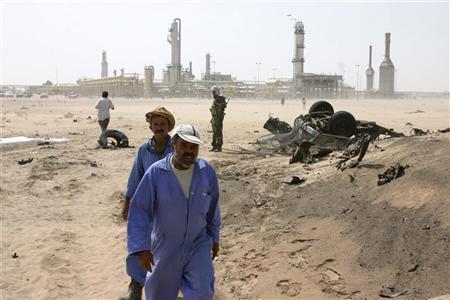Development of Rentierism
 Rentier state theory is “a political economy theory that seeks to explain state-society relations in states that generate a large proportion of their income from rents, or externally-derived, unproductively-earned payments” (Gray, 2011, p.1). In simple terms, rentier states derive substantial proportions of their revenues from renting their sources of natural resources to external parties. Rentier states are less motivated to offer concessions to individuals because it is less dependant of taxation to execute its duties, receiving substantial amounts of funds from abroad.
Rentier state theory is “a political economy theory that seeks to explain state-society relations in states that generate a large proportion of their income from rents, or externally-derived, unproductively-earned payments” (Gray, 2011, p.1). In simple terms, rentier states derive substantial proportions of their revenues from renting their sources of natural resources to external parties. Rentier states are less motivated to offer concessions to individuals because it is less dependant of taxation to execute its duties, receiving substantial amounts of funds from abroad.
Development of rentierism and rentier state theory into academic and practical levels can be divided into the following three phases: classical rentier state theory, the second phase of rientierism and late rientierism.
Classical Rentier Theory
The first phase of rentierism encompasses the period from the beginning of 1980’s and to the early 1990’s. This period is marked with immediate aftermath of Iranian revolution and Iran-Iraq war of 1980-1988. According to Elbadawi and Maksidi (2010), these both events have played significant role on fluctuations of world oil prices, with implications on global scale.
Jenkins et al. (2011) argue that this period of time is associated with a harsh, dictatorial rule of heads of rentier states. Moreover, Jenkins et al. (2011) note about misallocation of wealth, high levels of corruption and overall inefficiencies in rentier Gulf states during the phase.
The Second Phase of Rentierism
The validity of governments of rentier states being challenged, both, internally and externally is one of the main tendencies marking the second phase of rentierism. Specific factor contributing to these tendencies has been named as phenomenal economic developments in Dubai that served as a point for comparison by people from other oil rich countries in the region.
Moreover, during the second phase of rentierism economic scholars acknowledged that the relationship between the levels of government autonomy in decision-making and the levels of rentierism is much straightforward as it has been thought previously. Therefore, this period is also marked with criticism of academic works of previous contributors to the topic of rentierism.
Late Rentierism
One of the major themes within the last phase of rentierism is closely associated with intensifying forces of globalisation and direct and indirect implications of this tendency. Globalisation processes are placing increasing levels of pressure for rentier states to deliver.
Furthermore, it has been argued that globalisation, along with a set of other factors has possessed threats to the very existence of rentier states. Gray (2011) considers the rise of conservative Islamism to be another challenge rentier state governments have to deal with. Elbadawi and Maksidi (2010) confirm this point, and argue that the threat associated with the rise of conservative Islamism is sometimes underestimated by the governments of Gulf countries.
References
Elbadawi, I. & Maksidi, S. (2010) “Democracy in the Arab World: Explaining the Deficit” Routledge
Grey, M. (2011) “A Theory of ‘Late Rentierism” in the Arab States of the Gulf” Georgetown University School of Foreign Service in Qatar
Moulta-Ali, U.A. (2008) “Energy/Mineral Rentierism and Global Civil Conflict 1991-1999” The Ohio State University
